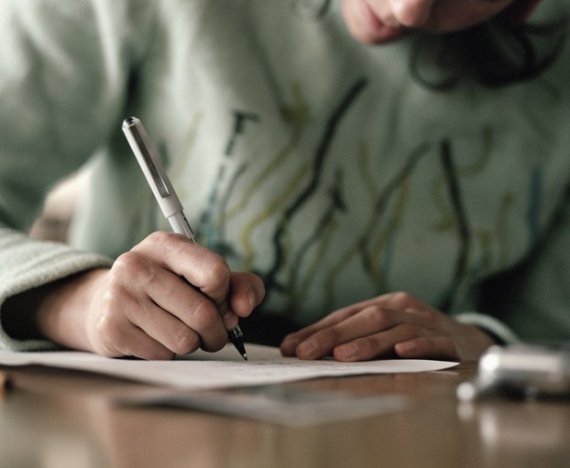In this busy, self-involved world, a simple “thank you” has the ability to stop us dead in our tracks. Whether we’ve helped a co-worker with a project or simply held the door for a stranger, being thanked for a good deed makes us stand up with attention. Why? Because we perceive that simple acts of gratitude are all too rare. In fact, many Americans feel that the levels of gratitude in this country are declining, according to a 2,000-person survey led by the John Templeton Foundation.
This leads us to reflect on our “attitude of gratitude”: How often do we feel grateful? And how often do we express gratitude toward others? We’ve partnered with American Greetings to explore how cultivating gratitude in your life can help you, and everyone around you, live a happier, healthier life. Check out the habits of truly appreciative people below.
They Express Gratitude Earnestly And Often
Not only will it make you feel happier, but it will make you new friends: In a small study titled “More Than A Thank You Note: The Power Of Gratitude Letters,” published in the Journal of Happiness Studies, 219 participants wrote three letters of gratitude over a three-week period; the results showed that although their overall level of gratitude didn’t increase, their feelings of happiness and life satisfaction did. They also displayed fewer depressive symptoms compared with a control group that did not write letters. And according to a 2014 study led by the University of New South Wales and published in the journal Emotion, thanking an acquaintance makes that person more likely to seek a longer-term friendship. Don’t know where to start? Here’s a template for writing your own letters.
They Remind Themselves To Be Grateful
It can be hard to find joy in the small things when you’re wrapped up in the day-to-day grind. Keep a regular journal of the small moments, people and thoughts that make you feel grateful. Louise Jensen of Tiny Buddha has a few great tips that will help make the practice something to look forward to, rather than a chore: don’t be hard on yourself if you can only come up with one or two items for your journal, and keep the updates to once or twice a week if you’re not feeling overly prolific. She also has a tried-and-true, writerly point for journaling: Be specific. If you can include details about why you are grateful for -- say, your best friend (i.e., “Susie called me to say hello just at the moment when I was feeling my lowest”) -- you’ll trigger a happy memory when you look back at the journal on a bad day.
They Say ‘Thank You’ At Work
Appreciative people try to cultivate a culture of gratitude no matter where they are. According to the John Templeton Foundation study, people are the least likely to feel (and express) gratitude at work. Thirty-five percent of participants also said that they “never” thank their boss or employer. How can we bring gratitude into the workplace -- and why is it important? Citing a study at the Wharton School at the University of Pennsylvania, Harvard Health notes that expressing gratitude can improve not only employees’ well-being, but productivity, as well . (“Managers who remember to say ‘thank you’ to people who work for them,” the med school newsletter says, “may find that those employees feel motivated to work harder.”) Among colleagues, saying a simple “thank you” can build a feeling of camaraderie, which has been proven to lead to higher job satisfaction and commitment, according to the Harvard Business Review.
They Are Grateful Even When Things Aren’t So - Well - Great
Dr. Robert Emmons of the University of California, Davis, is one of the leading experts on gratitude. In Greater Good, he asserts, “[B]eing grateful is a choice, a prevailing attitude that endures and is relatively immune to the gains and losses that flow in and out of our lives.” In other words, there is a difference between feeling grateful and the conscious choice of being grateful. It’s OK not to feel gratitude: you don’t have to ignore pain or stress to create an artificially “happy” demeanor. Emmons frames gratitude-as-coping-mechanism in two ways:
- Remember the bad: Think back to when you were at a low point and remember how far you’ve come since then.
- Reframe the present: Don’t ignore the negativity of a painful event. Instead, find moments of gratitude -- small glimmers of hope -- that grew from the experience. This will help you gain perspective and positivity where you least expect it.
As Emmons writes, “Consciously cultivating an attitude of gratitude builds up a sort of psychological immune system that can cushion us when we fall.” How do you express your appreciation and cultivate gratitude in your life? Do you find it has helped you during hard times?